Related Research Articles
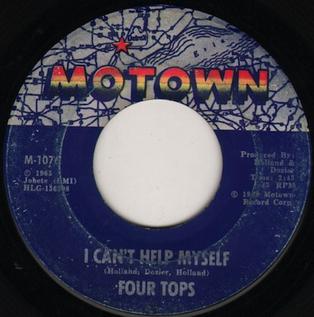
"I Can't Help Myself " is a 1965 hit song recorded by the Four Tops for the Motown label.
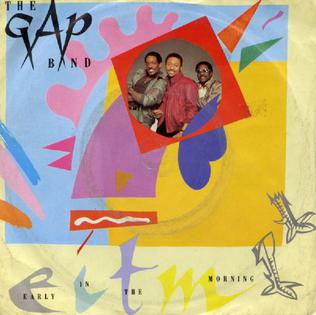
"Early in the Morning" is a song originally performed by The Gap Band, and written by member Charlie Wilson and producers Lonnie Simmons and Rudy Taylor.

"Double Dutch Bus" is a hit 1981 funk song by Frankie Smith, made famous for its extensive use of the "izz" infix form of slang. It was released as a single in 1980 and released under the album "Children of Tomorrow" in early 1981.
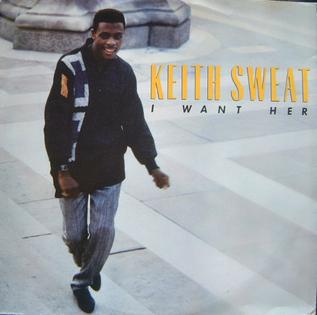
"I Want Her" is a song by American R&B singer Keith Sweat. As the first single from his debut album, Make It Last Forever, it reached number five on the Billboard Hot 100 and number one on the Hot R&B/Hip-Hop Singles & Tracks chart for three weeks. and became the most successful number one single of 1988 on the Billboard Hot R&B chart. This was one of the earliest new jack swing songs to reach No. 1 on the R&B charts and since then it has become one of the genre's templates, having its sparse lyric delivery inspired Guy, Abstrac and Whistle all in that order. "I Want Her" also peaked at number 38 on the dance chart. The song topped the R&B Billboard Year-End chart for 1988. It was ranked number 6 on complex.com's list of 25 best new jack swing songs of all time.

"Wake Up Everybody" is an R&B song written by John Whitehead, Gene McFadden and Victor Carstarphen.
"Jump to It" is a 1982 song by American recording artist Aretha Franklin. The track is from her Gold-certified 1982 album of the same name, produced by Luther Vandross. The song was written by Vandross and Marcus Miller and features background vocals performed by Vandross and Cissy Houston. The single reached No. 1 on Billboard's Hot Soul Singles chart, remaining there for four consecutive weeks.
"Stop to Love" is a song by American recording R&B/soul artist Luther Vandross. Released in 1986 as the lead single from his album Give Me the Reason. It was his first number-one single on the R&B chart since "Never Too Much" in 1981. The upbeat single was also a crossover hit, peaking at number fifteen on the Billboard Hot 100.

"Hi-Jack" is a 1974 song written by Spanish musician Fernando Arbex and originally recorded by the group Barrabás for their album ¡Soltad a Barrabás!. It was later a hit single for jazz flautist Herbie Mann.
"Mighty High" is 1975 disco/R&B single by Los Angeles-based gospel group, Mighty Clouds of Joy written by David Crawford.

"The Medicine Song" is a 1984 single by Stephanie Mills. It gave Mills her first number one Dance chart hit; her previous entry on the chart had been "Pilot Error", which had made it to number three.
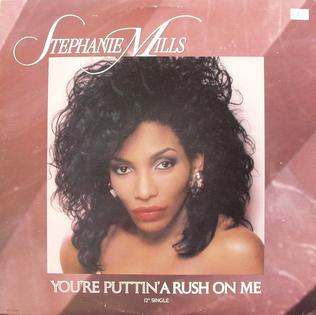
"(You're Puttin') A Rush on Me" is a 1987 single by American singer Stephanie Mills. The single was her third number one on the Hot Black Singles chart and second number one in 1987. The single spent one week at the top spot and crossed over to the Billboard Hot 100, peaking at number eighty-five. "(You're Puttin') A Rush on Me" also peaked at number twenty-three on the dance charts.
"It's No Crime" is a 1989 song written and performed by Babyface. The single was Babyface's first entry on the Hot 100 as a solo artist, peaking at number seven and reaching number one on the Hot Black Singles chart. The single was Babyface's only chart entry on the dance charts, where it peaked at number five.
"Funny How Time Slips Away" is a song written by Willie Nelson and first recorded by country singer Billy Walker. Walker's version was issued as single by Columbia Records in June 1961 and peaked at number 23 on the Hot C&W Sides chart.
"Back and Forth" is a 1987 single by Cameo, and was released on February 24, 1987.
Celi Bee is an American disco musician.

"Here We Go " is a song by American dance group C+C Music Factory. It was released in 1991 as the second single from their debut album, Gonna Make You Sweat. The song was a success in the US, reaching number three on the Billboard Hot 100 and number seven on the Billboard Hot R&B/Hip-Hop Songs. It also hit number one on the Billboard dance chart for three weeks. In Europe, it reached number 20 on the UK Singles Chart and number five on the UK Dance Singles Chart. The song was certified gold by the RIAA for sales of over 500,000 copies.

"You're My Driving Wheel" is a dance/disco song by The Supremes. The song was released on September 30, 1976 as the first single from their album Mary, Scherrie & Susaye. Along with the tracks, "Let Yourself Go" and "Love I Never Knew", "You're My Driving Wheel" peaked at number five on the disco chart. On the Soul chart, the single peaked at number fifty and number eighty-five on the Hot 100.

"He's My Man" is a single released by Motown singing group The Supremes. It is the lead single released from their 1975 self-titled album, The Supremes. The single's peak position was 69 on the US R&B charts, and number-one on the regional Disco charts.
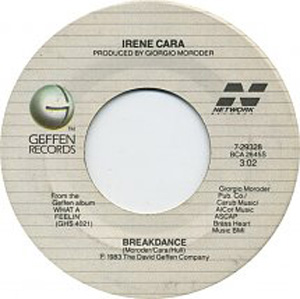
"Breakdance" is a song written by Giorgio Moroder, Bunny Hull, and the song's performer, Irene Cara. Moroder's obsession with the dance hit "Rockit" by Herbie Hancock fueled his composition of the music, and Cara was inspired by the street performers she saw growing up in the South Bronx to write lyrics about what was then called breakdancing. Released in March 1984, it was the third single that originated on her What a Feelin' LP and her first to make the top ten in the US since the album's title track went to number one almost a year earlier. "Breakdance" also charted in several other countries and had a dance remix that was also well received.
References
- ↑ "The Internet's Strangest Superhero Songs: Superman's Disco Legacy and more". The Beat. May 28, 2019. Retrieved August 10, 2020.
- ↑ Bordowitz, Hank (January 20, 2005). Noise of the World: Non-Western Musicians in Their Own Words. Soft Skull Press. p. 79. ISBN 9781932360608 . Retrieved August 10, 2020– via Google Books.
- ↑ Whitburn, Joel (2004). Top R&B/Hip-Hop Singles: 1942-2004. Record Research. p. 108.
- ↑ Whitburn, Joel (2004). Hot Dance/Disco: 1974-2003. Record Research. p. 54.
- ↑ Tye, Larry (June 12, 2012). Superman: The High-Flying History of America's Most Enduring Hero. Random House. p. 295. ISBN 9781588369185 . Retrieved August 10, 2020– via Google Books.
- ↑ Whitburn, Joel (2004). Top R&B/Hip-Hop Singles: 1942-2004. Record Research. p. 375.
- 1 2 3 "Celi Bee". Music VF. Retrieved August 10, 2020.
- ↑ Kent, David (1993). Australian Chart Book 1970–1992 (illustrated ed.). St Ives, N.S.W.: Australian Chart Book. p. 30. ISBN 0-646-11917-6.
- ↑ "Herbie Superman (Hot 100)". Billboard . Retrieved August 10, 2020.
- ↑ "Herbie Superman (Adult Contemporary)". Billboard . Retrieved August 10, 2020.
- ↑ "Herbie Superman (R&B)". Billboard . Retrieved August 10, 2020.